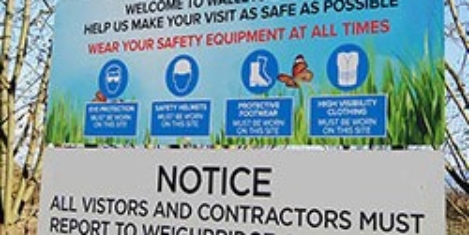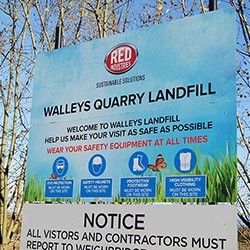To provide the best experiences, we use technologies like cookies to store and/or access device information. Consenting to these technologies will allow us to process data such as browsing behaviour or unique IDs on this site. Not consenting or withdrawing consent, may adversely affect certain features and functions.
The technical storage or access is strictly necessary for the legitimate purpose of enabling the use of a specific service explicitly requested by the subscriber or user, or for the sole purpose of carrying out the transmission of a communication over an electronic communications network.
The technical storage or access is necessary for the legitimate purpose of storing preferences that are not requested by the subscriber or user.
The technical storage or access that is used exclusively for statistical purposes.
The technical storage or access that is used exclusively for anonymous statistical purposes. Without a subpoena, voluntary compliance on the part of your Internet Service Provider, or additional records from a third party, information stored or retrieved for this purpose alone cannot usually be used to identify you.
The technical storage or access is required to create user profiles to send advertising, or to track the user on a website or across several websites for similar marketing purposes.
 Human resources research and advisory firm Josh Bersin Research, claims that the biggest change in the HR technology market is the spread of HR applications into areas beyond payroll and employee administration to support a broad set of work activities. Other evolutions in the HR tech market include rising corporate determination to improve overall employee experience (EX) and the growth of HR tools designed for employees, not managers. More →
Human resources research and advisory firm Josh Bersin Research, claims that the biggest change in the HR technology market is the spread of HR applications into areas beyond payroll and employee administration to support a broad set of work activities. Other evolutions in the HR tech market include rising corporate determination to improve overall employee experience (EX) and the growth of HR tools designed for employees, not managers. More →





 One of the most significant consequences of the 2008 economic crash was a remarkable shift
One of the most significant consequences of the 2008 economic crash was a remarkable shift 
 The pandemic has certainly opened our eyes to the importance of constantly washing our hands, sterilising everything in sight and realising just how far germs can travel through the air, causing us to wince at the thought of a time where we huddled on public transport without masks. However, as we contemplate heading back to the office in the near future, businesses need to translate these learnings into workplace design and move indoor air quality to the top of the agenda.
The pandemic has certainly opened our eyes to the importance of constantly washing our hands, sterilising everything in sight and realising just how far germs can travel through the air, causing us to wince at the thought of a time where we huddled on public transport without masks. However, as we contemplate heading back to the office in the near future, businesses need to translate these learnings into workplace design and move indoor air quality to the top of the agenda. 
 A new BCO research paper,
A new BCO research paper, 
 The COVID-19 pandemic has brought anxiety to many, but people are positive about their work, claims a new survey from
The COVID-19 pandemic has brought anxiety to many, but people are positive about their work, claims a new survey from 
 Someone really should have warned HR and people leaders that we needed to strap ourselves in, right? Even then, would we have ever been completely prepared for the rollercoaster ride organisations have experienced because of the pandemic? As part of Sage’s research, ‘
Someone really should have warned HR and people leaders that we needed to strap ourselves in, right? Even then, would we have ever been completely prepared for the rollercoaster ride organisations have experienced because of the pandemic? As part of Sage’s research, ‘
 We need to talk about Red Industries. More specifically we need to talk about the firm’s Walley’s Quarry landfill site in the town of Newcastle-under-Lyme.
We need to talk about Red Industries. More specifically we need to talk about the firm’s Walley’s Quarry landfill site in the town of Newcastle-under-Lyme.
 In March 2020, the COVID-19 global pandemic forced countless employers around the globe to send their non-essential employees home. Few organisations had a contingency plan for such a scenario, meaning the overwhelming majority of employers had to rethink their operations and communication functions on the fly.
In March 2020, the COVID-19 global pandemic forced countless employers around the globe to send their non-essential employees home. Few organisations had a contingency plan for such a scenario, meaning the overwhelming majority of employers had to rethink their operations and communication functions on the fly. 
 Employers are now more aware of their employee’s personal situation and family commitments than they were pre Covid-19, according to the
Employers are now more aware of their employee’s personal situation and family commitments than they were pre Covid-19, according to the 
 Of all the opportunities for positive change driven by the pandemic, the most important may be the least talked about. And that’s in spite of the fact that both workers and organisations as well as governments and other bodies around the world are aware and in favour of it and its consequences are most far reaching, affecting us all. It is, of course, the chance to do something significant about climate change and the environment.
Of all the opportunities for positive change driven by the pandemic, the most important may be the least talked about. And that’s in spite of the fact that both workers and organisations as well as governments and other bodies around the world are aware and in favour of it and its consequences are most far reaching, affecting us all. It is, of course, the chance to do something significant about climate change and the environment. 
 r workplace digital transformation and the urgent shift to remote working has seen the world experience two years of digital transformation in two months. New research from
r workplace digital transformation and the urgent shift to remote working has seen the world experience two years of digital transformation in two months. New research from 









March 9, 2021
The office will bounce back, but not as we remember it
by Luke Munro • Comment, Property, Workplace design